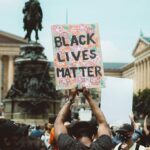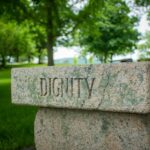
Insanity, it has been said, in a quote attributed to Albert Einstein, is “doing the same thing over and over and expecting different results.”
What does this have to do with nonprofits? Well, in the months since last January’s inauguration of Donald Trump as president, we have seen lawsuit after lawsuit and an avalanche of pleas for money and statements of solidarity.
These tactics may bring temporary relief, but are they working? And will doing more of the same advance the values that the nation’s progressive and community-facing nonprofit sector holds dear?
We suggest, respectfully, maybe not.
What will work? That is a matter open to debate, but we believe it is a vital debate to be had.
Here are some of our thoughts. For us, it all starts with one very simple observation: There is no such thing as an apolitical nonprofit sector. Nonprofits, at least the ones that claim to have social justice in their missions, have their politics, acknowledged or otherwise. A quick review of the so-called Big Beautiful Bill that was signed into law on July 4, should make it obvious to anyone paying attention that the social justice missions of many nonprofits are at odds with the US government in power.
As it is often said in community organizing, you’re either at the table or on the menu. Nonprofits have, too often, found themselves on the menu. It is time to be at the table.
Turning Potential Power into Actual Power: A Starter Agenda
How can nonprofits move from being on the menu to at the table? This is not an easy question, but it begins with a simple shift—from thinking of a nonprofit’s role as providing a service to building community power.
There is no such thing as an apolitical nonprofit sector. Nonprofits, at least the ones that claim to have social justice in their missions, have their politics, acknowledged or otherwise.
How might a nonprofit build community power? Here are some starter ideas.
- Center registration and voting. Some nonprofits have a mission of advancing voter turnout, but most do not. If you are a social justice–oriented nonprofit, then promoting registration and voting at work, among clients, and in the community, must be a priority. Message voting is not just a bedrock of democracy but something vital to ensure that the basic community services that the nonprofit favors will be maintained and improved as needed.
- Be a community enabler. Nonprofits with physical spaces—like theaters, galleries, and museums—should open those spaces to community groups to hold meetings and trainings at no cost. Let the business and issues of the community be sorted out and dealt with inside our cultural spaces. This will connect allies that have for too long been disconnected.
- Be politically active at the state and local levels. Nonprofit organizations must band together to poll their constituents on the issues of the day and survey candidates for city council, mayor, and governor. Nonprofits can work in coalitions that issue a candidate questionnaire to the relevant office seekers and ask them to respond. Their responses are then recorded and transmitted back to the constituents. Groups might even grade candidates on how well they responded to the constituents’ concerns. When you combine a sustained and powerful voter registration drive with a candidate forum process, you will discover that candidates for local office will suddenly make themselves experts on your chosen issues.
- Defend the public sector. Progressive nonprofits need to do a lot of repair work around lifting up and defending the very notion of “public” in America.
The Republican Party, starting with the Powell Memo in 1971, has systematically attacked the very notion of government social services. This campaign has been well-documented in the book The Big Myth: How American Business Taught Us to Loathe Government and Love the Free Market by Naomi Oreskes and Erik Conway—which NPQ covered in 2023. Ultimately, as Carmen Rojas of the Marguerite Casey Foundation wrote in NPQ, the nonprofit sector needs to mobilize to “shift public dollars to support the public goods our nation so desperately needs.”
You will discover that candidates for local office will suddenly make themselves experts on your chosen issues.
The long-standing assault on the very nature of “public” is going to require a massive public response.
We propose training leaders from our ranks and paying them to hit the road and go from venue to venue, to teach and preach the virtues of “public.”
Why? Because only a robust, excellent, and evolving public sector has a prayer of solving the persistent and pernicious problems that threaten equity, democracy, and our physical environment.
We will not charity our way out of racism, global warming, or the staggering wealth gaps that now dwarf the Gilded Age of the 1890s. The citizenship schools that helped defeat Jim Crow in the South give a model for what we are suggesting.
- Enter the public arena. Yes, this means nonprofit members must be trained to be candidates that contest for office—from Congress to state legislatures to city councils to school boards. Power, of course, is built from the ground up.
This work is already in motion. Both of us are part of the 100K Project, profiled last December at NPQ, that has the audacious goal of inspiring 100,000 people to get involved and at least 10,000 to run as candidates at the local level.
The National Guild for Community Arts Education, for example, is partnering with the 100K Project to launch a pilot training program designed specifically for community-based artists and cultural workers to run for office, serve on boards and commissions, or take up civic leadership roles in their communities. Starting in the fall of 2025, this eight-week virtual program will equip participants with the tools to lead with values, organize with intention, and govern with justice.
We know that artists and culture bearers have always been movement leaders, translators of truth, and protectors of public memory. So why shouldn’t they also be council members, commissioners, or even mayors?
This is your invitation to join us. Or, if for some reason you don’t want to join us, at least copy us—and build local candidate pipelines and networks of your own.
If you’re tired of lobbying systems that weren’t built for you, maybe it’s time to change them from the inside out.
So, if you are in a leadership position at an organization that deals with the nonprofit sector—be it the Independent Sector, Americans for the Arts, the National Council of Nonprofits, the National Association of Social Workers, the American Institute of Architects, the National Council of Teachers of English, and so on, we call on you to recalibrate and add this training to your organization’s year-round programming. Devote a leadership development track to this work—and keep at it consistently.
Why Organizing Matters
Organizing matters. The recent history of the United States proves this point.
Back in 1992, a New York Times headline read, “Christian Conservatives Counting Hundreds of Gains in Local Votes”—this, in an election where Bill Clinton prevailed at the national level. Thirty years later, in 2022, a different New York Times headline on page one read, “The Far-Right Christian Quest for Power: ‘We Are Seeing Them Emboldened.’” The long feature article profiled how local candidate organizing had over time elevated far-right candidates from the fringes to the mainstream.
We know that artists and culture bearers have always been movement leaders.…So why shouldn’t they also be council members, commissioners, or even mayors?
There is no headline along the lines of “Artists and Nonprofit Workers Win Hundreds of Elections Across America.” Yet.
Let’s work together to build a national movement to inspire and equip our peers from the arts, nonprofit services, social work, nursing, library, science, and education sectors to run, or help someone run, for local office in 2026 and 2028.
If that happens, all across the country our peers will be telling their stories and asking for the votes of their neighbors as they pledge to be effective champions of the public sector, of science, of the rule of law, of equity, of justice, and of creativity. The 100K Project in collaboration with the National Guild for Community Arts Education will hold an initial training in October.
Are you in?














